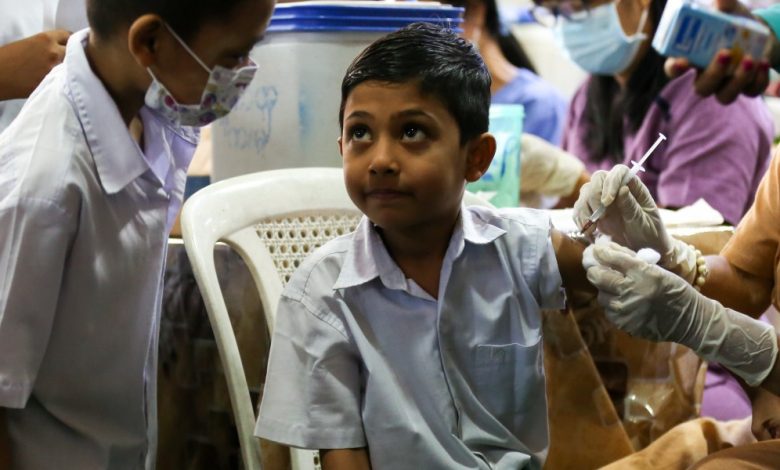‘Hybrid’ COVID immunity through vaccination and infection is superior to infection alone, new WHO-supported study shows

So-called “hybrid immunity” — through vaccination and infection — offers better protection against serious illness and hospitalization from COVID than immunity from infection alone, according to a new study published in The lancet.
The study provides health officials and policy makers with recommendations on priorities for conducting vaccination campaigns and the potential frequency of booster vaccinations in the future.
The World Health Organization, which worked on the study, touted it Wednesday for “demonstrating the benefits of vaccination even after COVID-19.”
Those who developed hybrid immunity had a 95% reduced risk of developing serious illness or needing hospitalization a year later, according to the study, which looked at data from 26 other studies. Those previously infected but not vaccinated experienced reduced protection against it. Their risk was only 75% lower, researchers found.
People with hybrid immunity after their first two COVID shots were almost 42% less likely to contract COVID a year later and almost 47% less likely six months after their first booster shot. For those who had been infected but not vaccinated, protection was only 25% at 12 months.
Because individuals with hybrid immunity have the highest protection against COVID in addition to the longest duration, they may be able to wait six months after infection or vaccination before receiving a booster dose, the authors said.
Decision-makers can use the study’s findings to tailor vaccine recommendations to a region, the study said. When resources are scarce in a region where most have been infected with COVID and there are competing public health priorities, authorities may choose to focus on vaccinating high-risk individuals with only the two-shot primary line of vaccines to concentrate.
Given that immunity to major diseases and diseases is still strong a year from now, mass vaccination campaigns could be implemented before expected annual increases, such as in winter, the authors added.
However, they warned against creating differentiated vaccination guidelines, which are complicated to understand and could therefore reduce uptake.
Because Omicron is so transmissible compared to previous COVID variants, it has greatly increased infection rates and thus some levels of immunity, albeit waning, around the world, the WHO said in a June statement. In February 2021, shortly after Omicron’s rise, the global health organization estimated that 16% of the world’s population was infected. By October of the same year, that estimate rose to 67%.
Learn how to navigate and build trust in your organization with The Trust Factor, a weekly newsletter exploring what leaders need to succeed. Sign up here.



